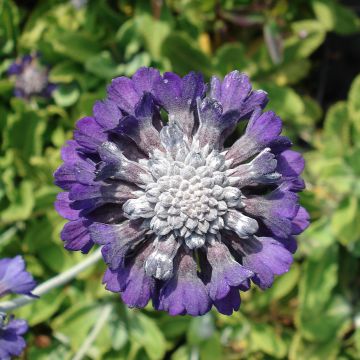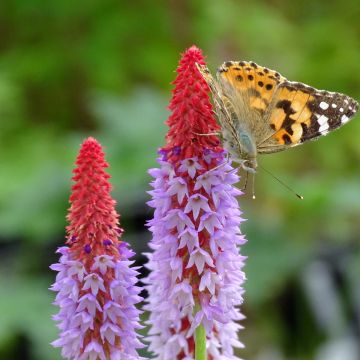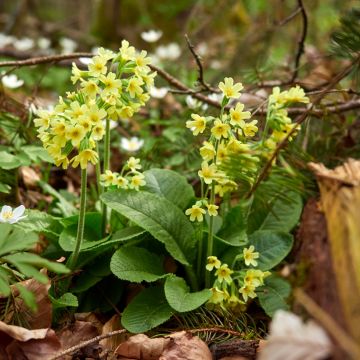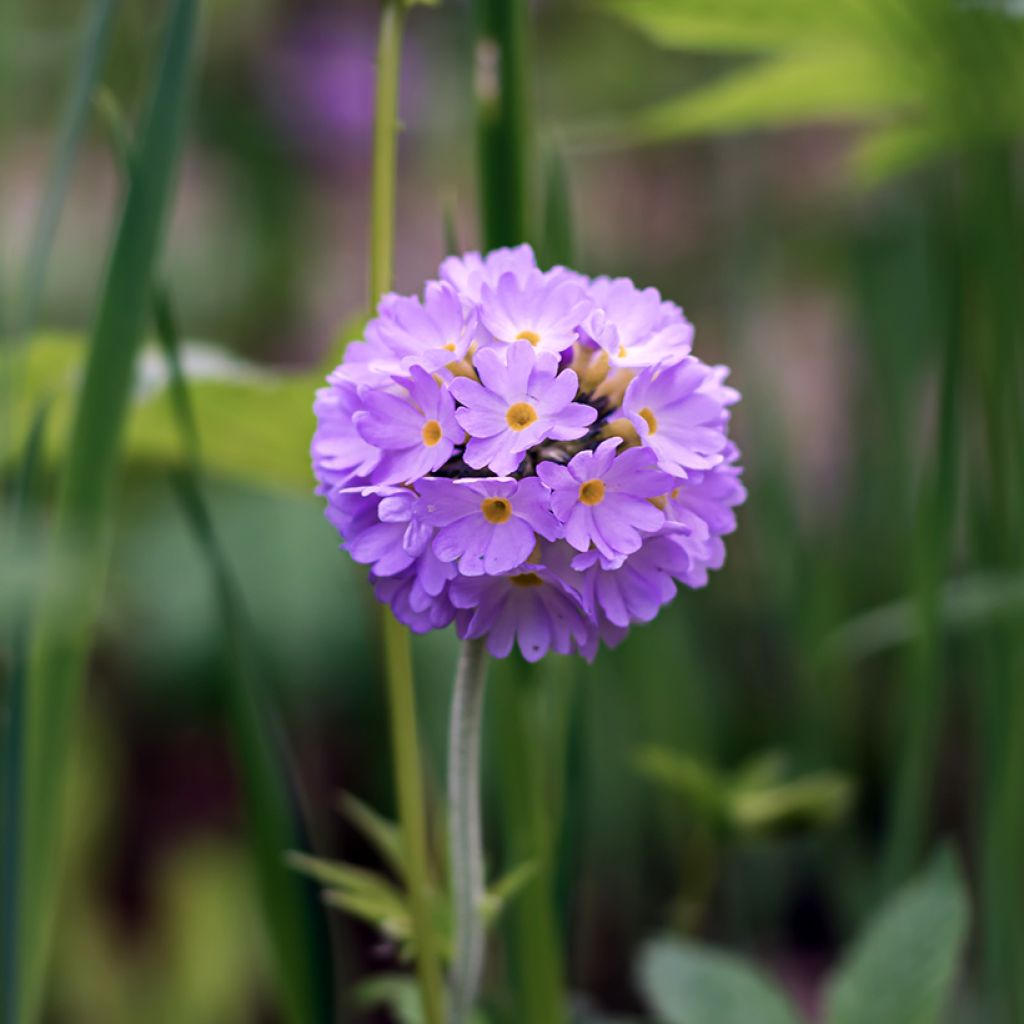

Primula denticulata Prom Lilac - Primrose
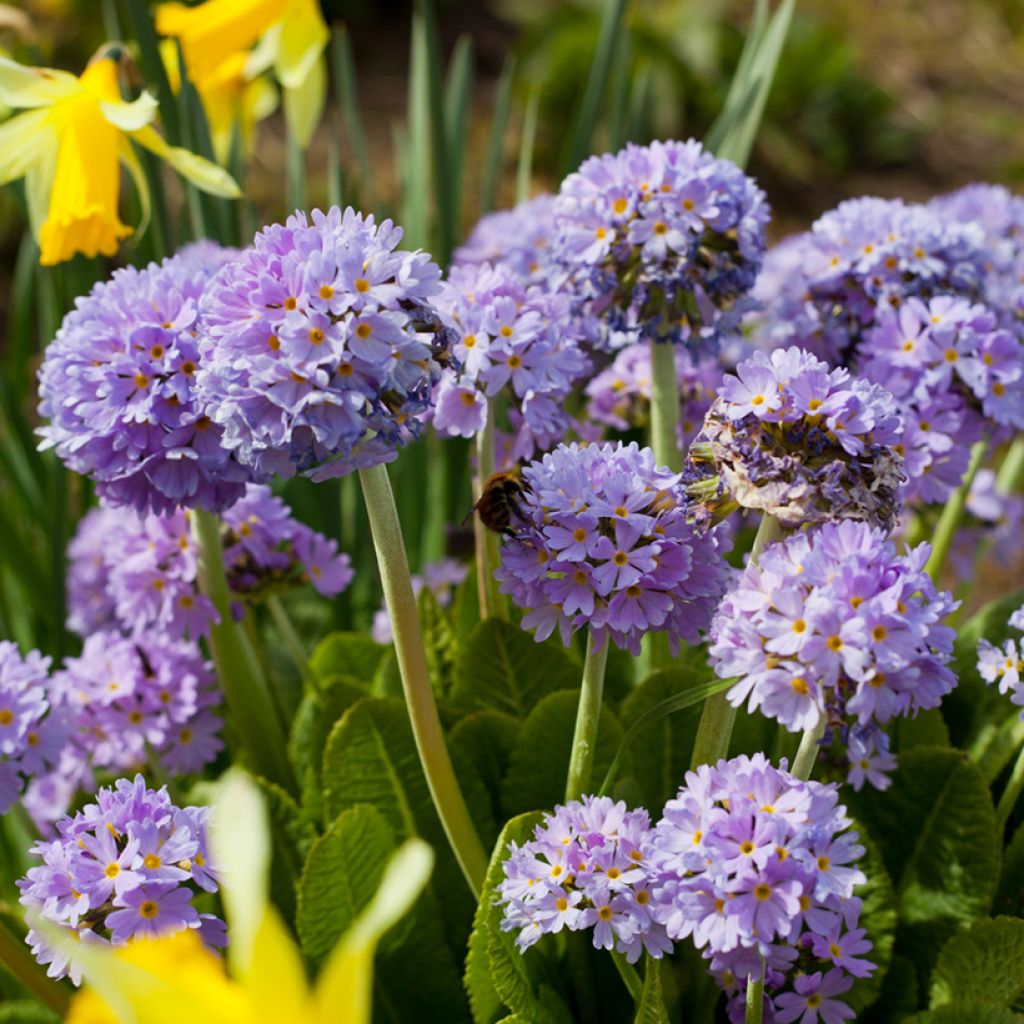

Primula denticulata Prom Lilac - Primrose
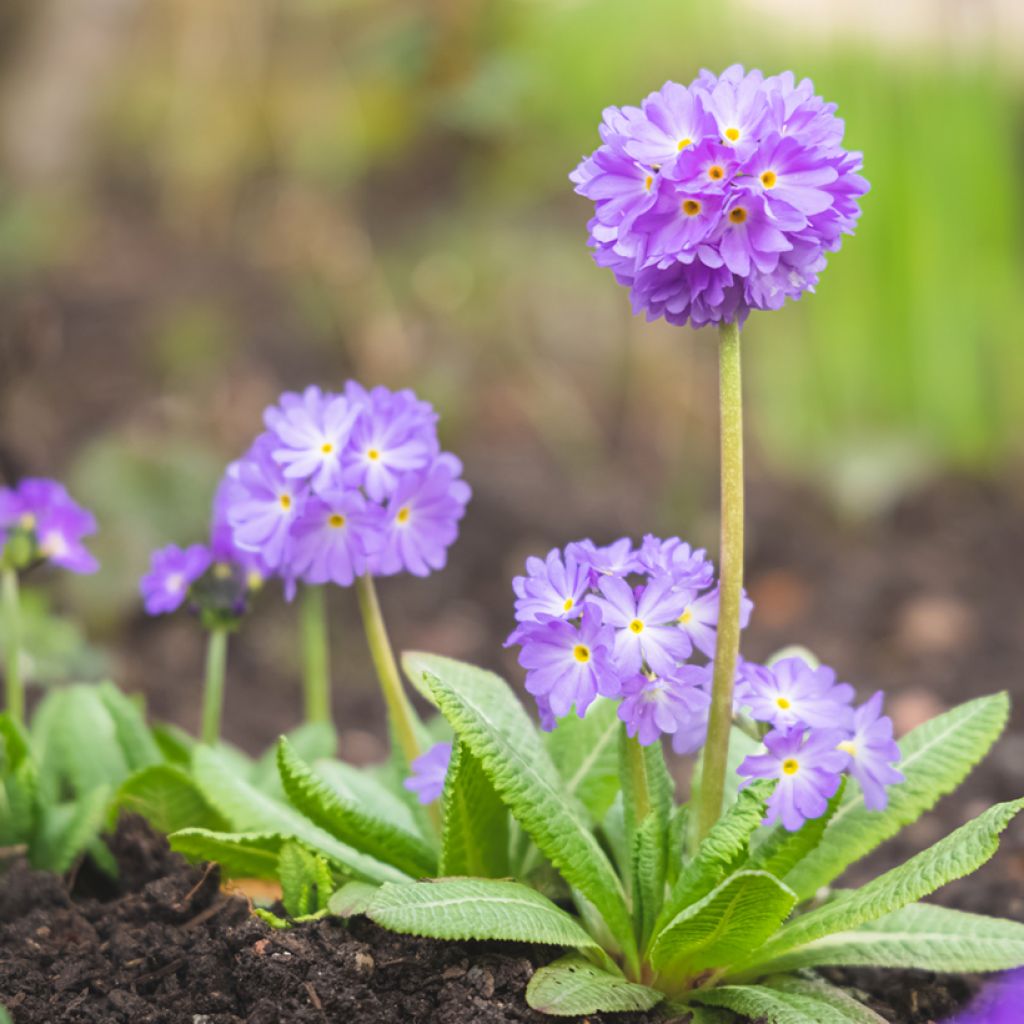

Primula denticulata Prom Lilac - Primrose
Primula denticulata Prom Lilac - Primrose
Primula denticulata Prom Lilac
Drumstick Primula, Drumstick Primrose, Tooth-leaved Primrose
The delivered young plant is very small, I hope it will take root.
Francoise, 02/11/2021
Special offer!
Receive a €20 voucher for any order over €90 (excluding delivery costs, credit notes, and plastic-free options)!
1- Add your favorite plants to your cart.
2- Once you have reached €90, confirm your order (you can even choose the delivery date!).
3- As soon as your order is shipped, you will receive an email containing your voucher code, valid for 3 months (90 days).
Your voucher is unique and can only be used once, for any order with a minimum value of €20, excluding delivery costs.
Can be combined with other current offers, non-divisible and non-refundable.
Home or relay delivery (depending on size and destination)
Schedule delivery date,
and select date in basket
This plant carries a 12 months recovery warranty
More information
We guarantee the quality of our plants for a full growing cycle, and will replace at our expense any plant that fails to recover under normal climatic and planting conditions.
Would this plant suit my garden?
Set up your Plantfit profile →
Description
The 'Prom Lilac' Compound Primula denticulata is a lovely variety of Himalayan primrose that makes a big impact in spring, when it produces robust stems of beautiful lilac flowers with yellow eyes. This young plant is also characterized by a lush rosette of villous basal leaves that expands over time. It can be grown in a pot, in a cool rockery or at the edge of a border, and its flowers are perfect for cutting. Provide it with a semi-shaded exposure as well as a humus-rich and moist soil.
The 'Prom Lilac' Primula belongs to the primrose family, like all primroses. Its ancestor is a perennial plant native to the forests and meadows of the Himalayas, Tibet, and Nepal. The flowering of this variety takes place from March to May: several thick and sturdy flower stalks, 15 to 30 cm (6 to 12in) in height, emerge from the basal foliage. Each one carries a spherical inflorescence with a diameter of 5-6 cm (2in), composed of numerous small flowers packed tightly together. Their pastel colour is intermediate between mauve and pink, each one being enhanced by a small yellow eye in the throat. The foliage is a dense rosette of elongated ovate and spatulate leaves, 15 to 25 cm (6 to 10in) long, with dentate edges, which reaches its full size after flowering. These leaves are green with a white underside. They are deciduous and therefore disappear in winter.
The 'Prom Lilac' Dentate Primula has excellent hardiness. This plant, which disappears in autumn, is suitable for cool rockeries, borders, flower beds, or even in semi-natural environments. It can be combined with many spring bulbs (tulips, daffodils, hyacinths etc.), astilbes, hostas, pansies, violets, or small ferns. It is also a very good cut flower, very decorative. Be careful of the presence of primine, which can cause allergic reactions in certain sensitive individuals.
Report an error about the product description
Primula denticulata Prom Lilac - Primrose in pictures
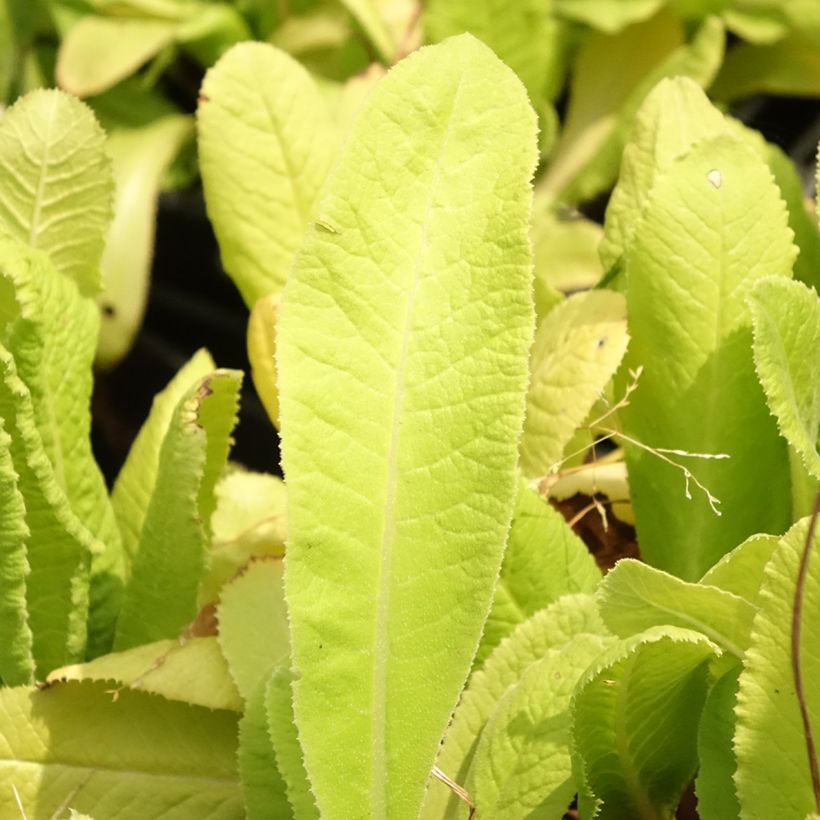



Flowering
Foliage
Plant habit
Botanical data
Primula
denticulata
Prom Lilac
Primulaceae
Drumstick Primula, Drumstick Primrose, Tooth-leaved Primrose
Cultivar or hybrid
Other Primula - Primroses
View all →Planting and care
Plant Primulas denticulata 'Prom Lilac' in a sunny or semi-shady location, in autumn or spring. Place them in ordinary, deep soil, fairly rich, moist to damp, but light, not too clayey. Avoid excessively chalky and compact soils. The cultivation of this plant is easy under these conditions. Separate every year or every two years using the shoots that will appear around the original plant.
Planting period
Intended location
Care
-
, onOrder confirmed
Reply from on Promesse de fleurs
Haven't found what you were looking for?
Hardiness is the lowest winter temperature a plant can endure without suffering serious damage or even dying. However, hardiness is affected by location (a sheltered area, such as a patio), protection (winter cover) and soil type (hardiness is improved by well-drained soil).

Photo Sharing Terms & Conditions
In order to encourage gardeners to interact and share their experiences, Promesse de fleurs offers various media enabling content to be uploaded onto its Site - in particular via the ‘Photo sharing’ module.
The User agrees to refrain from:
- Posting any content that is illegal, prejudicial, insulting, racist, inciteful to hatred, revisionist, contrary to public decency, that infringes on privacy or on the privacy rights of third parties, in particular the publicity rights of persons and goods, intellectual property rights, or the right to privacy.
- Submitting content on behalf of a third party;
- Impersonate the identity of a third party and/or publish any personal information about a third party;
In general, the User undertakes to refrain from any unethical behaviour.
All Content (in particular text, comments, files, images, photos, videos, creative works, etc.), which may be subject to property or intellectual property rights, image or other private rights, shall remain the property of the User, subject to the limited rights granted by the terms of the licence granted by Promesse de fleurs as stated below. Users are at liberty to publish or not to publish such Content on the Site, notably via the ‘Photo Sharing’ facility, and accept that this Content shall be made public and freely accessible, notably on the Internet.
Users further acknowledge, undertake to have ,and guarantee that they hold all necessary rights and permissions to publish such material on the Site, in particular with regard to the legislation in force pertaining to any privacy, property, intellectual property, image, or contractual rights, or rights of any other nature. By publishing such Content on the Site, Users acknowledge accepting full liability as publishers of the Content within the meaning of the law, and grant Promesse de fleurs, free of charge, an inclusive, worldwide licence for the said Content for the entire duration of its publication, including all reproduction, representation, up/downloading, displaying, performing, transmission, and storage rights.
Users also grant permission for their name to be linked to the Content and accept that this link may not always be made available.
By engaging in posting material, Users consent to their Content becoming automatically accessible on the Internet, in particular on other sites and/or blogs and/or web pages of the Promesse de fleurs site, including in particular social pages and the Promesse de fleurs catalogue.
Users may secure the removal of entrusted content free of charge by issuing a simple request via our contact form.
The flowering period indicated on our website applies to countries and regions located in USDA zone 8 (France, the United Kingdom, Ireland, the Netherlands, etc.)
It will vary according to where you live:
- In zones 9 to 10 (Italy, Spain, Greece, etc.), flowering will occur about 2 to 4 weeks earlier.
- In zones 6 to 7 (Germany, Poland, Slovenia, and lower mountainous regions), flowering will be delayed by 2 to 3 weeks.
- In zone 5 (Central Europe, Scandinavia), blooming will be delayed by 3 to 5 weeks.
In temperate climates, pruning of spring-flowering shrubs (forsythia, spireas, etc.) should be done just after flowering.
Pruning of summer-flowering shrubs (Indian Lilac, Perovskia, etc.) can be done in winter or spring.
In cold regions as well as with frost-sensitive plants, avoid pruning too early when severe frosts may still occur.
The planting period indicated on our website applies to countries and regions located in USDA zone 8 (France, United Kingdom, Ireland, Netherlands).
It will vary according to where you live:
- In Mediterranean zones (Marseille, Madrid, Milan, etc.), autumn and winter are the best planting periods.
- In continental zones (Strasbourg, Munich, Vienna, etc.), delay planting by 2 to 3 weeks in spring and bring it forward by 2 to 4 weeks in autumn.
- In mountainous regions (the Alps, Pyrenees, Carpathians, etc.), it is best to plant in late spring (May-June) or late summer (August-September).
The harvesting period indicated on our website applies to countries and regions in USDA zone 8 (France, England, Ireland, the Netherlands).
In colder areas (Scandinavia, Poland, Austria...) fruit and vegetable harvests are likely to be delayed by 3-4 weeks.
In warmer areas (Italy, Spain, Greece, etc.), harvesting will probably take place earlier, depending on weather conditions.
The sowing periods indicated on our website apply to countries and regions within USDA Zone 8 (France, UK, Ireland, Netherlands).
In colder areas (Scandinavia, Poland, Austria...), delay any outdoor sowing by 3-4 weeks, or sow under glass.
In warmer climes (Italy, Spain, Greece, etc.), bring outdoor sowing forward by a few weeks.

































